Supported Living Services
Lunns Hope Supported Living Services has much experience in providing supported living services to developmentally and/or intellectually disabled adults in the greater Los Angeles area. We have over 35 years of combined work experience to ensure individuals receive quality healthcare services and their rights are met.
LHC-SLS believes that this experience will enable us to relate with all facets of an individual’s life to assist, empower, and enable them to become their own self-advocate.
Lunns Hope Supported Living Services will also utilize an extensive list of medical providers and home health agencies that encompass a wide array of specialized medical conditions that will work closely with our agency, who in turn will coordinate the medical care and needs of the individuals served.
Our mission at Lunns Hope Supported Living Services is to provide the necessary level of support for individuals who have made a decision to live in their own home.
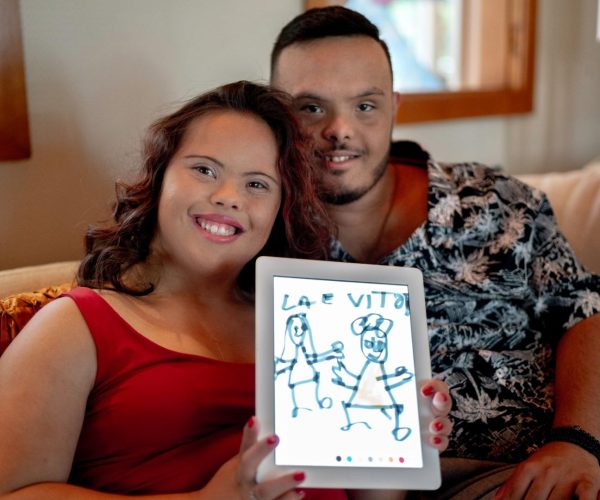
Lunns Hope Supported Living Services will encourage individuals with developmental and / or intellectual challenges in order to take control of and be responsible for their life choices.
Lunns Hope Supported Living Services provides an array of supported services to our individuals and will facilitate making informed choices concerning where and how they live. We will work to ensure successful community living options by providing individualized support based on each individual’s needs and preferences.
Lunns Hope Supported Living Services believes that each individual has an inherent right to make choices for themselves. The regional centers we work with have been at the forefront of the Self-Advocacy movement and have always been innovative in developing their system around the ever-changing and growing needs of their individuals. Lunns Hope Supported Living Services will work together with regional centers and their staff to develop individualized support for each individual we serve.
Lunns Hope Supported Living Services will support you in:
- Choosing where and with whom to live with.
- Controlling the character and appearance of their home.
- Choosing and changing their SLS vendors and SLS instructional staff.
- Actively participating in their ISP process so that the supported living services they receive is based on their needs and preferences.
- Receiving services appropriate to their evolving needs
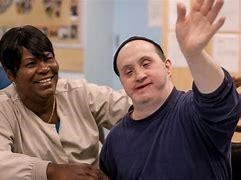
Choice and Self-Directed Services
Lunns Hope Supported Living Services offers an exciting opportunity for individuals to live the way they want to live in their own homes. They choose what to do each day from morning until evening. Also, like other adults, they plan for their futures based on their personal goals and dreams.
Individual Choices
At Lunns Hope SLS Individuals make their own everyday choices, plan for their futures, and direct the services they receive and have a choice of agencies and staff. Furthermore, individuals are supported (e.g., technology, communication devices, behavioral support) to communicate their preferences, choices and needs.
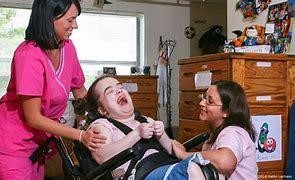
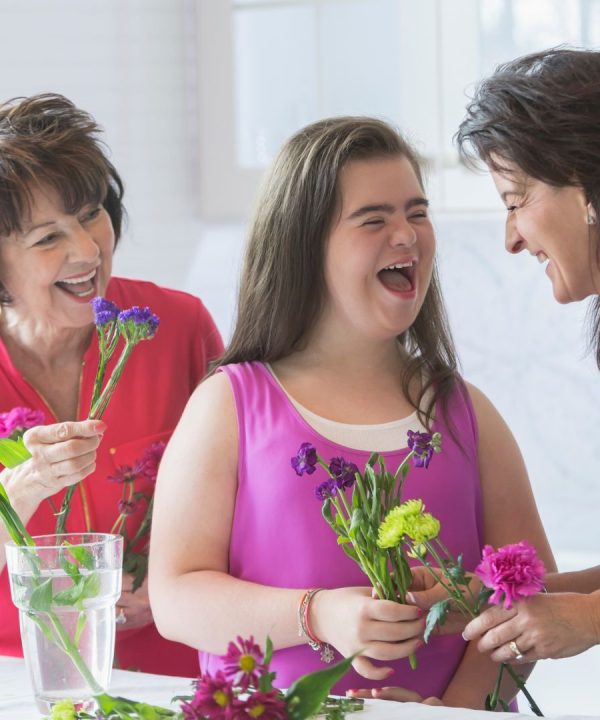
Individuals Direct Their Services
At Lunns Hope SLS Individuals who receive supported living services are at the center of planning the services and supports they receive. While their family, friends, regional center case manager, and the SLS agency participate in the planning process, it is the individual who receives the services that has the loudest voice. When an individual is not able to communicate in typical ways, our staff learns about their needs and preferences by spending time with them, observing their preferences and the things that work or don’t work for them.
Our staff also listens to the people who know and care about the individual to find out how to support them. First, the individual selects an agency (assuming they have decided to use us), which then develops an Individualized Service Plan with the individual that reflects the services they want and need. The service plan describes what services (e.g., cooking, budgeting, hiring of personal assistants), will be provided, who will provide these services (e.g., live-in housemate, a scheduled personal assistant, community support facilitator), when services will be provided (e.g., time of day, frequency), and how (e.g., instruction, facilitation, supervision) services will be provided. Just as the individual’s needs will be constantly changing, the service plan will be continuously changing to reflect the current needs and desires.
Individuals Choose Who Provides Services to Them.
Individuals who receive supported living services from Lunns Hope SLS have the right to choose who will be hired to work with and for them. They also have the right to change staff. In supported living, the individual participates as much as they are able and willing in hiring, training, and supervising staff. The process for hiring looks something like this:
- A person centered planning and assessment process is used to get to know the
individual being referred for services. - The individual’s preferences and needs drive the development of job descriptions
and employment agreements.
Individuals Plan for Their Futures
Lunns Hope Supported living services assist each individual to clarify their goals and dreams for their future. We typically use a person-centered planning strategy to facilitate this process (PATH and MAPS are two readily available examples of this strategy we use).
Lunns Hope assist the individual to bring together their family, friends and others who know and care about them to be a part of the future planning process. Lunns Hope SLS understand the power of bringing together the individual’s circle of support to increase everyone’s commitment to helping the individual move toward their chosen future. The individual’s supported living service plan describes the services and supports that the Lunns Hope SLS will provide to assist him or her to achieve their life goals, as well as how the agency will help coordinate support that the individual receives from other people and agencies.
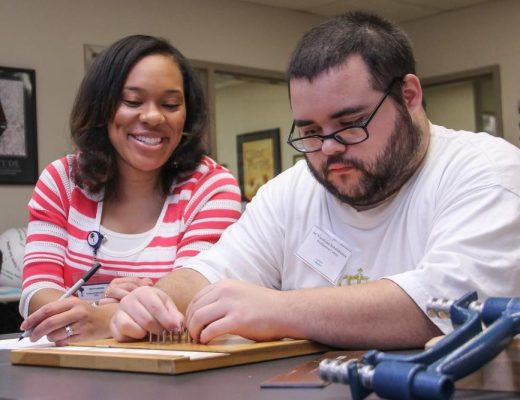
If You are Thinking about Supported Living Services
Person-Centered Planning
- What person-centered planning process or processes will Lunns Hope use to get to
know the individuals who are referred for services? - What process will Lunns Hope use to assist each individual to develop their Individual Support Plan?
- What process will Lunns Hope use to help individuals develop a plan for their future?
- What role will the individual’s family and friends have in the assessment and
planning processes?

Individuals Choose Their Staff
- If the individual cannot interview in regular ways (i.e., sit down question and
answer interview) how will Lunns Hope support them to choose their staff? - How will the individual’s circle of support participate in the hiring, supervising,
and firing processes?

Choice and Self-Directed Services:
- How will the Lunns Hope support people with behavioral challenges?
- How will Lunns Hope get to know and support the needs and desires of people who do not communicate in regular ways?
- How will Lunns Hope agency support the individual to build a circle of support that will
come together to share the responsibility for problem solving if an individual is
making risky decisions? - How will Lunns Hope balance the issues around risk and choice? What sort of
risk assessment process will the agency use?
Relationships
Most of us want, more than anything else, to have people in our lives who care about us and love us. Most people will tell you that their relationships are most important in their lives. People with disabilities are no different. Lunns Hope SLS work hard to support individuals to have caring and durable relationships with community members, family and friends.
It might be said that supported living is all about relationships. For us, it’s all about:
- making a commitment to the individual;
- sticking with them over a long period of time;
- acting in the role of extended family;
- staff, individuals, families and friends all standing together to support one another;
- mutual trust and respect;
- understanding and listening to all points of view;
- sharing the values of supported living;
- doing what it takes;
- being able to count on each other;
- staff sharing their family and friends with the individual and their family and friends;
- broadening the person’s circle of people who know and care about them;
- sharing holidays, birthdays, important occasions, as well as the hard and sad times.
Individuals have family, friends and neighbors who support them in regular ways or as paid help. Individuals and their circle of support work together as a team with the supported living agency and others to share responsibility for his or her well being.
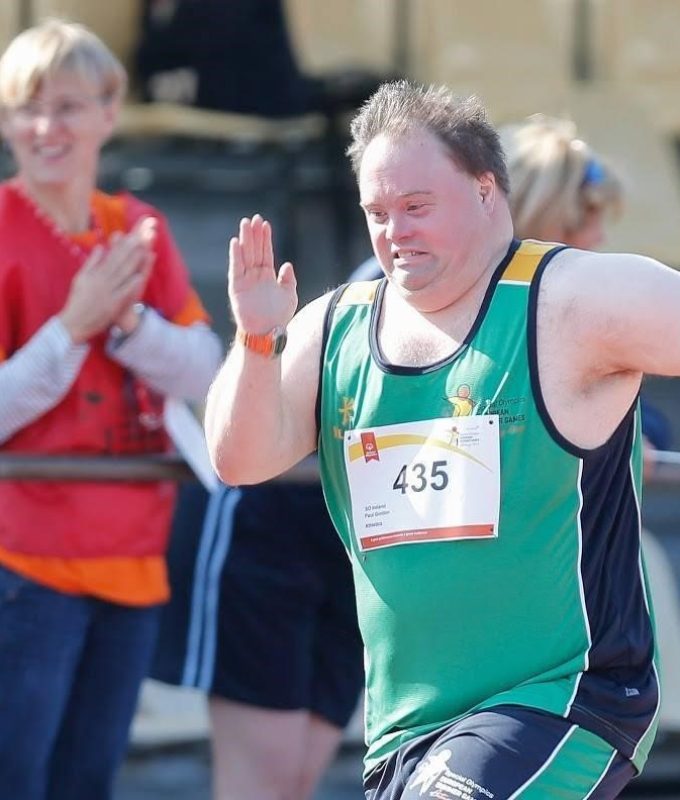
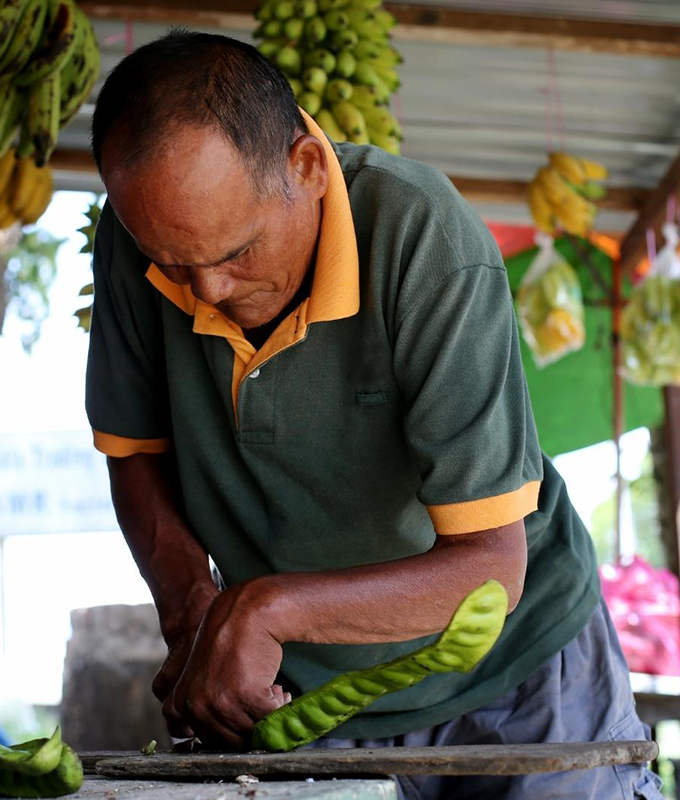
Circles of Support
One of the ways that Lunns Hope SLS is different from many other kinds of services is that there is an emphasis on helping the individual to pull together a group of people who make a commitment to help the person figure out how to have a good life. This group of people is sometimes called a circle of support. A circle of support may be formal or informal. Formal circles agree to meet regularly, whereas informal circles may not have meetings at all. Most of us have informal circles of support that include our families, friends, community members and people we pay (e.g., car mechanic, hairdresser, dentist) to support us. Our circles of support most likely never come together as a group unless it is to celebrate or grieve with us. Individuals with disabilities may benefit from having their circle of support come together formally to: learn more about the individual and the people in that person’s life, listen to the individual’s hopes and dreams for the future, and see what support and resources each person in the circle can contribute to helping the individual have a good life.
An individual’s circle of support may also come together if the individual is making decisions that place his or her health and safety in jeopardy. During these times the circle is invaluable for supporting the individual’s right to make decisions while at the same time providing increased direction or intervention to assist the individual to be safe. An effective circle of support works together within a culture of mutual trust and respect to share responsibility for supporting the individual. SLS agencies facilitate and support both informal and formal circles of support. This facilitation requires skills in communication, community building, power sharing, negotiation, collaboration, team building, meeting facilitation, and personal futures planning.
Community Membership
Lunns Hope Supported Living Service quickly discovered that some of the most important and also the most difficult work they do is supporting individuals to become valued members of their local community. Community membership is more than just being present in the community. Membership is about being welcomed and being known by other members of the community. It is about the teller at the bank recognizing the individual and offering help. It is about the checker at the grocery store helping someone reach items difficult to reach from a wheelchair. It is about the church members who invite the individual to lunch after Church on Sunday. It is about being invited to join the neighborhood equestrian club.
Individuals fully participate in the mainstream of community life according to personal choice and preference. Individuals have opportunities to join clubs, groups, organizations, and religious groups.
Individuals use local community resources and generic services. Community membership is especially rewarding for the individual and the community when the individual is a contributing member. For example, the individual may be a volunteer at a local food bank, or regularly help their elderly neighbor mow their lawn. Sometimes community members and organizations naturally welcome an individual without the assistance of the SLS agency, while other times we at Lunns Hope must be thoughtful and purposeful at facilitating the individual’s participation. Lunns Hope SLS provide training to their staff in building community connections. Also, staff are encouraged to share their own community connections. For example, if a staff member knows someone who belongs to a bicycle club and the agency supports someone who is interested in riding bikes, the staff person might ask the support of the friend to welcome the individual into the club. The staff member might go with the individual or Lunns Hope SLS might even pay the bike club member to be a support person at bike rides.
If You are Thinking about Supported Living Services.
LUNNS Hope SLS works creatively and purposefully to help people become valued members of their communities:
- What will Lunns Hope SLS do to help individuals have meaningful community membership? How will Lunns Hope SLS train staff? Will Lunns Hope hire people who have community connections?
- If you are in business now, do any of the current employees or Board members have community connections to clubs, groups, organizations, or churches? If yes, could they act as a bridge between an individual who gets services and this community group?
- What do Lunns Hope SLS think will be the response of community members and community organizations to people with significant disabilities? What about people with unusual or challenging behavior?
- People will need special transportation so they can participate in community activities that are not accessible through public transportation. How will staff provide transportation? In their own vehicles? What about insurance to cover the agency and the employee? What about transportation for someone who uses a wheelchair?
Flexible, Tailored Services and Supports
Lunns Hope SLS offers a wide ranging array of services and supports. Each person’s service plan and pattern of support is developed through a person centered planning process. The services are based on what the individual needs and wants and the services continue as long as the individual needs and wants them. Every individual is unique and the services are individualized for them.
Individual Service Plans are developed through a person-centered planning process, including mutable service plans reflect the support that each individual wants and needs. Individuals have opportunities to increase their abilities, confidence and quality of life and support to maintain an adequate level of health and safety.
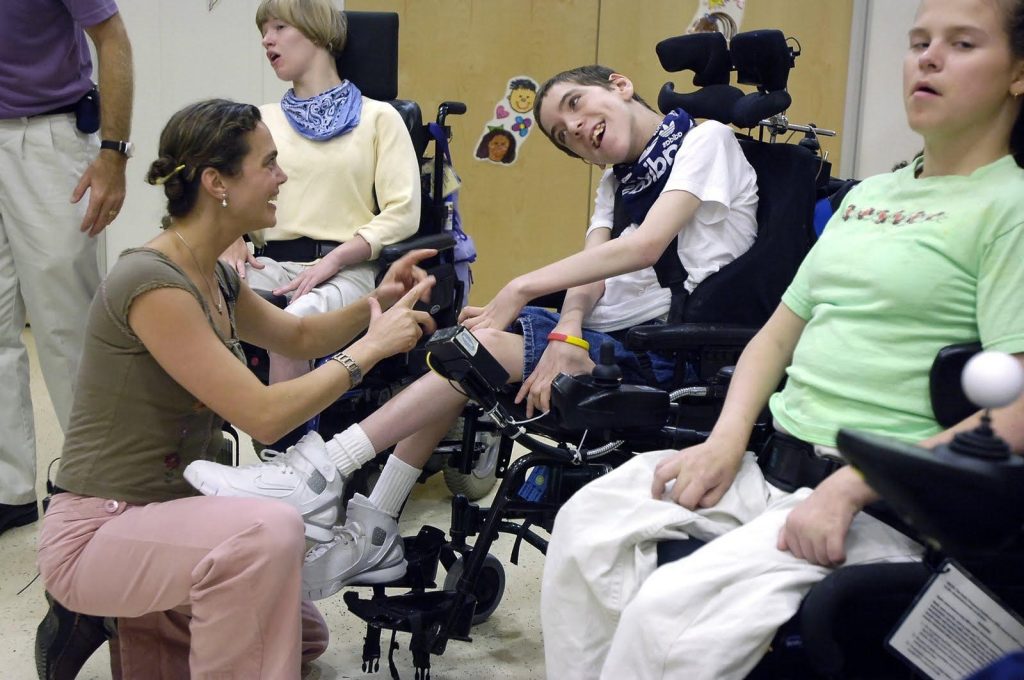
Getting to Know the Person and Planning for Services
Supported living agencies use a person centered assessment process to get to know the person who is referred for services. They may use a process similar to Essential Lifestyle.
Planning or Getting to Know You. They want to discover:
- What is important to the person in their everyday life.
- What people, places, activities and things are important.
- What routines and rituals are important.
- What the person can do for themselves and what they will need support to do.
- How the person would like support provided (i.e., time of day, qualities of staff, frequency, order of doing things).
- The kinds of support the person will need to stay safe and healthy.
- How the person communicates their needs and desires.
- What the agency and others will need to know and do to help the individual live in a way that makes sense for them.
This assessment process is done initially to help develop a support plan but the learning
and discovery process continues throughout the relationship between the agency and the individual.
Individual Service Plan
Lunns Hope SLS spent a sufficient amount of time (the process can sometimes take months) getting to know the person (doing an assessment), the individual, their family and friends, their regional center service coordinator, and the agency come together and develop the Individual Service Plan. Support plans quite typically offer a wide range of services and supports based on individual wants and needs. The Individual Service Plan is expected to change over time as the individual’s needs and desires change. The service plan, services, and supports always remain responsive to the individual. As stated earlier, the individual continues to live in his or her own home (if so desired) as their needs change.
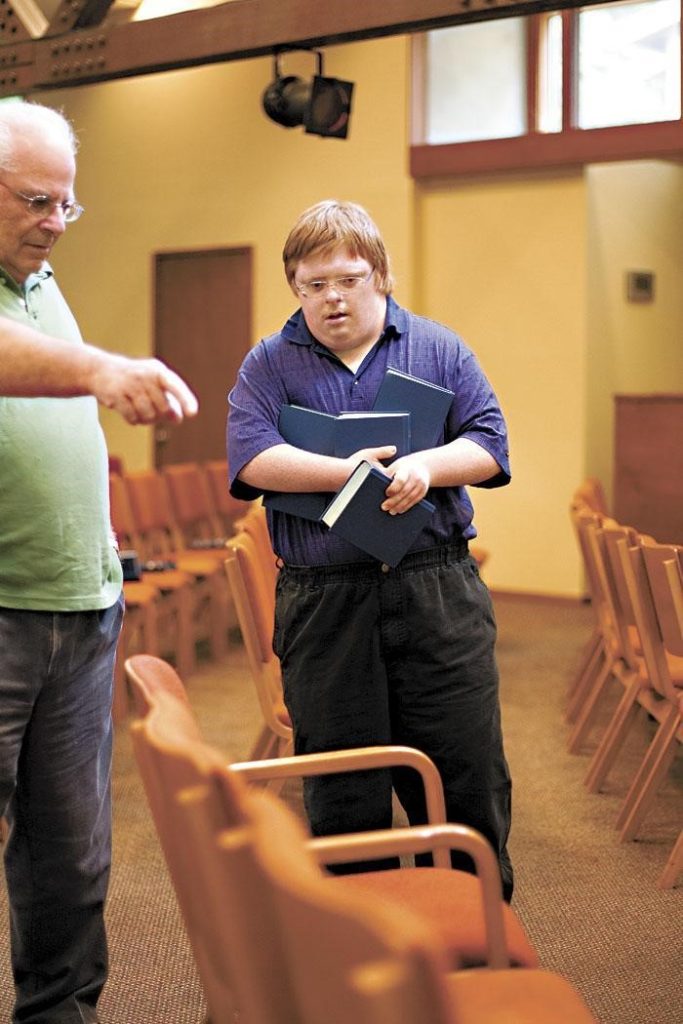
Individual Service Plan
Lunns Hope SLS spent a sufficient amount of time (the process can sometimes take months) getting to know the person (doing an assessment), the individual, their family and friends, their regional center service coordinator, and the agency come together and develop the Individual Service Plan. Support plans quite typically offer a wide range of services and supports based on individual wants and needs. The Individual Service Plan is expected to change over time as the individual’s needs and desires change. The service plan, services, and supports always remain responsive to the individual. As stated earlier, the individual continues to live in his or her own home (if so desired) as their needs change.
Personal Support Services
At Lunns Hope we are very keenly mindful of the reasons supported living services were first developed was to meet the needs of individuals who wanted to live in their own places but who needed personal assistance or attendant services that they could not receive through IHSS. Some individuals needed more hours of personal assistance services than IHSS would fund. Some individuals needed on-call support to help them when a regularly scheduled IHSS employee did not show up. Some individuals needed help to recruit, hire, and supervise their IHSS employees. The health and safety of some individuals was at risk even when they received the maximum number of IHSS hours.
Supported living personal assistance services do not take the place of IHSS, but fill in with the services and hours that IHSS does not include. Also, supported living agencies can assist individuals to hire and supervise their personal attendants.
Responsive Services
Supported living agencies like Lunns Hope SLS provide scheduled, agreed upon services, during the time of day and the day of the week that makes sense for the individual. The individual does not fit into the staff ’s schedule; rather the staff person schedules him or herself according to the individual’s schedule and pattern of life or routines. In addition to providing scheduled services, supported living agencies also assist each individual (as needed) to develop a 24-hour emergency response system. For some, this may involve calling on family or friends in a non life-threatening emergency. Other times, this may mean calling a crisis line. While others may call someone who is paid by the SLS agency to be on-call. The reasons that individuals need on-call support vary. Some need back-up support if a personal support assistant does not show up. Others need emotional support, crisis prevention support or someone with whom to talk. Supported living agencies may use pagers, cell phones, a 24-hour answering service or a combination of technologies all arranged so that someone is always available
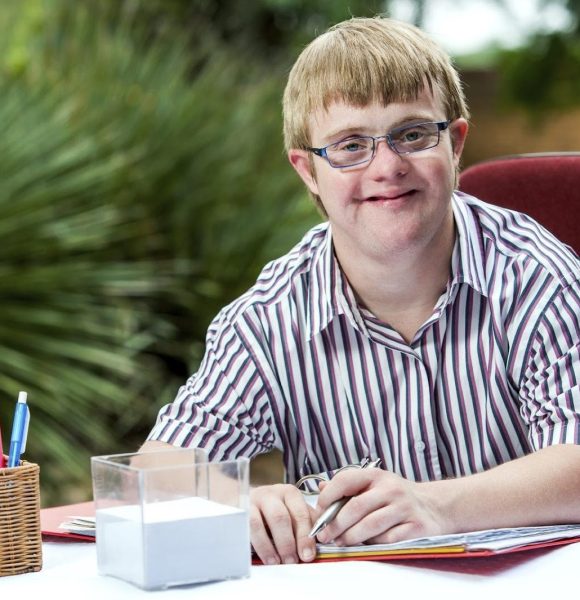
If You Are Thinking About Supported Living Services- Individualized Service Planning
Supported living agencies use holistic, person-centered planning processes to get to know people referred for services. They also use futures planning processes to assist people to clarify their hopes and dreams for their future.
- How will your agency assess patients’ needs and desires?
- How will your agency help people plan for their futures?
- If your agency currently provides other kinds of services, what kind of training, if any, will your staff need that they don’t have now?
Individualized patterns of support
At Lunns Hope SLS we are creative and flexible when we are designing job descriptions, wages and benefits for their staff.
- How will your agency provide this flexible administrative support? For example, some agencies require a personnel committee or a lengthy administrative process to develop a new wage for a new job or for revising job descriptions. When this is the case, the process may be a barrier to providing flexible, tailored services in a timely manner.
- How will the agency support the employment of people in positions that may be new and require different methods of compensation and benefits (e.g., companion, personal assistant, paid housemate, paid neighbor)?
- How would your agency assist individuals to use IHSS? How would you help them recruit, screen, hire, train and supervise?
HOW IT WORKS
Lunns Hope Corporation’s Supported Living Program supports people with a wide range of requirements and goals. We first assist each person to find members of their support team that work well in their life. They then collaborate with this team to create a customized service plan that suits their needs and wishes.
Direct support staff can offer services from a few hours per week to many hours per day. They provide basic personal support services that include, but are not limited to:
- Support with meals, hygiene, and mobility
- Budgeting and bill paying
- Getting to and from daily errands
- Meeting short- and long-term goals
In addition to direct support, Supported Living includes coordination of daily schedules, financial and health oversight, building community connections, coordination of any needed medical care, and ensuring consistent communication with the person and their whole support team. The individual and their team collaborate on setting up systems for success in these areas.
ELIGIBILITY
Supported Living is funded through California Developmental Disabilities Services, and requires a referral from a Regional Center – Westside Regional Center (WRC), South Los Angeles Regional Center (SCLARC) and Harbor Regional Center (HRC) Services Coordinator
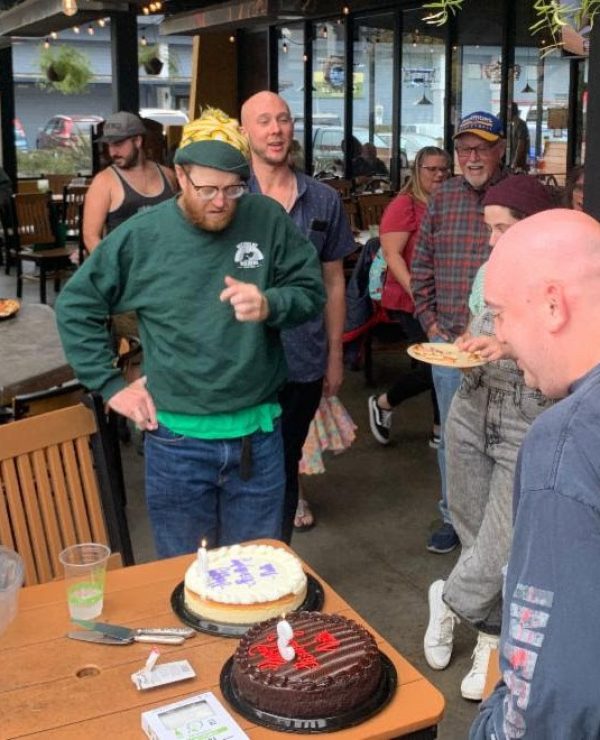
Employment Connections Program
Lunns Hope’s Employment Connections Program provides customized support for people with disabilities who seek meaningful employment.
The program helps businesses fulfill labor needs while helping people gain valuable experience and skills necessary to achieve financial stability, to work within their communities, and to make a difference in the lives of others.
WHY
At Lunns Hope SLS, people with disabilities have the right to contribute, live, work, and thrive in the community of their choice. Employment is not just about a paycheck. It is also about social and personal value – both to the individual and the community.
- People with disabilities are 3 to 4 times more likely to live in poverty
- Approximately 75% of people with disabilities in the United States are unemployed
- Employment develops confidence, skills, and experience. These developments empower individuals to be financially independent and positively engage with their communities.
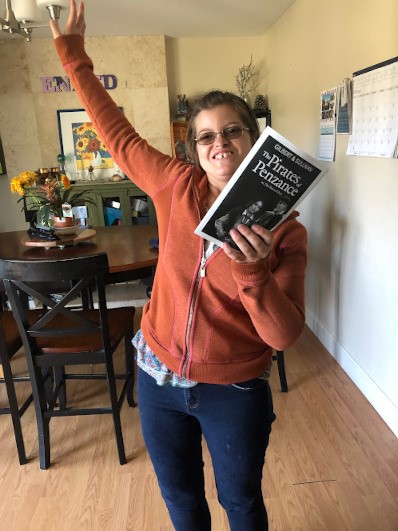
HOW IT WORKS
Lunns Hope staff works with job seekers to assess their skills, preferences, and goals and to determine their ideal work environment. We also work closely with business partners to create jobs that fulfill specific needs while considering the skills of the employee. All placement and job training services are provided cost-free to our job seekers and business partners.
- Job Analysis: Lunns Hope works with the business to clearly define a position. This includes defining the position’s responsibilities, skills needed, and expectations of quality and production.
- On-the-Job Training: An experienced job trainer provides on-site training until the new employee meets the employer’s standards. The trainer also works with supervisors and co-workers to develop effective support strategies.
- Systematic Evaluation: Lunns Hope follows-up with the employer as needed to ensure that the employee’s performance is meeting company standards.
- Additional Training and Follow-Up: At the employer’s request, we can expand or refine job duties. A job trainer provides additional training to the employee and ongoing support to both employee and employer.
More Information
For more information and questions about what Lunns Hope does and the types of support we provide, please contact us at:
Lunns Hope Corporation
959 N. La Brea Avenue
Inglewood, CA 90302
Phone: 310-779-6762
Fax: 888-293-8686
Email: Lunnshope@Gmail.Com
Website: www.LunnsHopeCorporation.com
Individuals Choose Who Provides Services to Them.
Individuals who receive supported living services from Lunns Hope SLS have the right to choose who will be hired to work with and for them. They also have the right to change staff. In supported living, the individual participates as much as they are able and willing in hiring, training, and supervising staff. The process for hiring looks something like this:
- A person centered planning and assessment process is used to get to know the
individual being referred for services. - The individual’s preferences and needs drive the development of job descriptions
and employment agreements.
Individuals Plan for Their Futures
Lunns Hope Supported living services assist each individual to clarify their goals and dreams for their future. We typically use a person-centered planning strategy to facilitate this process (PATH and MAPS are two readily available examples of this strategy we use).
Lunns Hope assist the individual to bring together their family, friends and others who know and care about them to be a part of the future planning process. Lunns Hope SLS understand the power of bringing together the individual’s circle of support to increase everyone’s commitment to helping the individual move toward their chosen future. The individual’s supported living service plan describes the services and supports that the Lunns Hope SLS will provide to assist him or her to achieve their life goals, as well as how the agency will help coordinate support that the individual receives from other people and agencies.

If You are Thinking about Supported Living Services
Person-Centered Planning
- What person-centered planning process or processes will Lunns Hope use to get to
know the individuals who are referred for services? - What process will Lunns Hope use to assist each individual to develop their Individual Support Plan?
- What process will Lunns Hope use to help individuals develop a plan for their future?
- What role will the individual’s family and friends have in the assessment and
planning processes?
Individuals Choose Their Staff
- If the individual cannot interview in regular ways (i.e., sit down question and
answer interview) how will Lunns Hope support them to choose their staff? - How will the individual’s circle of support participate in the hiring, supervising,
and firing processes?
Choice and Self-Directed Services:
- How will the Lunns Hope support people with behavioral challenges?
- How will Lunns Hope get to know and support the needs and desires of people who do not communicate in regular ways?
- How will Lunns Hope agency support the individual to build a circle of support that will
come together to share the responsibility for problem solving if an individual is
making risky decisions? - How will Lunns Hope balance the issues around risk and choice? What sort of
risk assessment process will the agency use?
Relationships
Most of us want, more than anything else, to have people in our lives who care about us and love us. Most people will tell you that their relationships are most important in their lives. People with disabilities are no different. Lunns Hope SLS work hard to support individuals to have caring and durable relationships with community members, family and friends.
It might be said that supported living is all about relationships. For us, it’s all about:
- making a commitment to the individual;
- sticking with them over a long period of time;
- acting in the role of extended family;
- staff, individuals, families and friends all standing together to support one another;
- mutual trust and respect;
- understanding and listening to all points of view;
- sharing the values of supported living;
- doing what it takes;
- being able to count on each other;
- staff sharing their family and friends with the individual and their family and friends;
- broadening the person’s circle of people who know and care about them;
- sharing holidays, birthdays, important occasions, as well as the hard and sad times.
Individuals have family, friends and neighbors who support them in regular ways or as paid help. Individuals and their circle of support work together as a team with the supported living agency and others to share responsibility for his or her well being.
Circles of Support
One of the ways that Lunns Hope SLS is different from many other kinds of services is that there is an emphasis on helping the individual to pull together a group of people who make a commitment to help the person figure out how to have a good life. This group of people is sometimes called a circle of support. A circle of support may be formal or informal. Formal circles agree to meet regularly, whereas informal circles may not have meetings at all. Most of us have informal circles of support that include our families, friends, community members and people we pay (e.g., car mechanic, hairdresser, dentist) to support us. Our circles of support most likely never come together as a group unless it is to celebrate or grieve with us. Individuals with disabilities may benefit from having their circle of support come together formally to: learn more about the individual and the people in that person’s life, listen to the individual’s hopes and dreams for the future, and see what support and resources each person in the circle can contribute to helping the individual have a good life.
An individual’s circle of support may also come together if the individual is making decisions that place his or her health and safety in jeopardy. During these times the circle is invaluable for supporting the individual’s right to make decisions while at the same time providing increased direction or intervention to assist the individual to be safe. An effective circle of support works together within a culture of mutual trust and respect to share responsibility for supporting the individual. SLS agencies facilitate and support both informal and formal circles of support. This facilitation requires skills in communication, community building, power sharing, negotiation, collaboration, team building, meeting facilitation, and personal futures planning.
Community Membership
Lunns Hope Supported Living Service quickly discovered that some of the most important and also the most difficult work they do is supporting individuals to become valued members of their local community. Community membership is more than just being present in the community. Membership is about being welcomed and being known by other members of the community. It is about the teller at the bank recognizing the individual and offering help. It is about the checker at the grocery store helping someone reach items difficult to reach from a wheelchair. It is about the church members who invite the individual to lunch after Church on Sunday. It is about being invited to join the neighborhood equestrian club.
Individuals fully participate in the mainstream of community life according to personal choice and preference. Individuals have opportunities to join clubs, groups, organizations, and religious groups.
Individuals use local community resources and generic services. Community membership is especially rewarding for the individual and the community when the individual is a contributing member. For example, the individual may be a volunteer at a local food bank, or regularly help their elderly neighbor mow their lawn. Sometimes community members and organizations naturally welcome an individual without the assistance of the SLS agency, while other times we at Lunns Hope must be thoughtful and purposeful at facilitating the individual’s participation. Lunns Hope SLS provide training to their staff in building community connections. Also, staff are encouraged to share their own community connections. For example, if a staff member knows someone who belongs to a bicycle club and the agency supports someone who is interested in riding bikes, the staff person might ask the support of the friend to welcome the individual into the club. The staff member might go with the individual or Lunns Hope SLS might even pay the bike club member to be a support person at bike rides.
If You are Thinking about Supported Living Services.
LUNNS Hope SLS works creatively and purposefully to help people become valued members of their communities:
- What will Lunns Hope SLS do to help individuals have meaningful community membership? How will Lunns Hope SLS train staff? Will Lunns Hope hire people who have community connections?
- If you are in business now, do any of the current employees or Board members have community connections to clubs, groups, organizations, or churches? If yes, could they act as a bridge between an individual who gets services and this community group?
- What do Lunns Hope SLS think will be the response of community members and community organizations to people with significant disabilities? What about people with unusual or challenging behavior?
- People will need special transportation so they can participate in community activities that are not accessible through public transportation. How will staff provide transportation? In their own vehicles? What about insurance to cover the agency and the employee? What about transportation for someone who uses a wheelchair?
Flexible, Tailored Services and Supports
Lunns Hope SLS offers a wide ranging array of services and supports. Each person’s service plan and pattern of support is developed through a person centered planning process. The services are based on what the individual needs and wants and the services continue as long as the individual needs and wants them. Every individual is unique and the services are individualized for them.
Individual Service Plans are developed through a person-centered planning process, including mutable service plans reflect the support that each individual wants and needs. Individuals have opportunities to increase their abilities, confidence and quality of life and support to maintain an adequate level of health and safety.

Getting to Know the Person and Planning for Services
Supported living agencies use a person centered assessment process to get to know the person who is referred for services. They may use a process similar to Essential Lifestyle.
Planning or Getting to Know You. They want to discover:
- What is important to the person in their everyday life.
- What people, places, activities and things are important.
- What routines and rituals are important.
- What the person can do for themselves and what they will need support to do.
- How the person would like support provided (i.e., time of day, qualities of staff, frequency, order of doing things).
- The kinds of support the person will need to stay safe and healthy.
- How the person communicates their needs and desires.
- What the agency and others will need to know and do to help the individual live in a way that makes sense for them.
This assessment process is done initially to help develop a support plan but the learning
and discovery process continues throughout the relationship between the agency and the individual.
Individual Service Plan
Lunns Hope SLS spent a sufficient amount of time (the process can sometimes take months) getting to know the person (doing an assessment), the individual, their family and friends, their regional center service coordinator, and the agency come together and develop the Individual Service Plan. Support plans quite typically offer a wide range of services and supports based on individual wants and needs. The Individual Service Plan is expected to change over time as the individual’s needs and desires change. The service plan, services, and supports always remain responsive to the individual. As stated earlier, the individual continues to live in his or her own home (if so desired) as their needs change.
Personal Support Services
At Lunns Hope we are very keenly mindful of the reasons supported living services were first developed was to meet the needs of individuals who wanted to live in their own places but who needed personal assistance or attendant services that they could not receive through IHSS. Some individuals needed more hours of personal assistance services than IHSS would fund. Some individuals needed on-call support to help them when a regularly scheduled IHSS employee did not show up. Some individuals needed help to recruit, hire, and supervise their IHSS employees. The health and safety of some individuals was at risk even when they received the maximum number of IHSS hours.
Supported living personal assistance services do not take the place of IHSS, but fill in with the services and hours that IHSS does not include. Also, supported living agencies can assist individuals to hire and supervise their personal attendants.
Responsive Services
Supported living agencies like Lunns Hope SLS provide scheduled, agreed upon services, during the time of day and the day of the week that makes sense for the individual. The individual does not fit into the staff ’s schedule; rather the staff person schedules him or herself according to the individual’s schedule and pattern of life or routines. In addition to providing scheduled services, supported living agencies also assist each individual (as needed) to develop a 24-hour emergency response system. For some, this may involve calling on family or friends in a non life-threatening emergency. Other times, this may mean calling a crisis line. While others may call someone who is paid by the SLS agency to be on-call. The reasons that individuals need on-call support vary. Some need back-up support if a personal support assistant does not show up. Others need emotional support, crisis prevention support or someone with whom to talk. Supported living agencies may use pagers, cell phones, a 24-hour answering service or a combination of technologies all arranged so that someone is always available

If You Are Thinking About Supported Living Services- Individualized Service Planning
Supported living agencies use holistic, person-centered planning processes to get to know people referred for services. They also use futures planning processes to assist people to clarify their hopes and dreams for their future.
- How will your agency assess patients’ needs and desires?
- How will your agency help people plan for their futures?
- If your agency currently provides other kinds of services, what kind of training, if any, will your staff need that they don’t have now?
Individualized patterns of support
At Lunns Hope SLS we are creative and flexible when we are designing job descriptions, wages and benefits for their staff.
- How will your agency provide this flexible administrative support? For example, some agencies require a personnel committee or a lengthy administrative process to develop a new wage for a new job or for revising job descriptions. When this is the case, the process may be a barrier to providing flexible, tailored services in a timely manner.
- How will the agency support the employment of people in positions that may be new and require different methods of compensation and benefits (e.g., companion, personal assistant, paid housemate, paid neighbor)?
- How would your agency assist individuals to use IHSS? How would you help them recruit, screen, hire, train and supervise?

